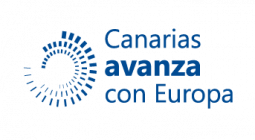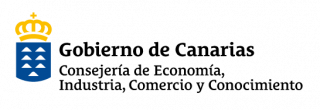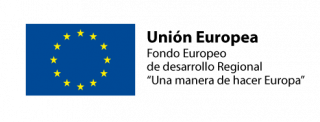The IAC (Tenerife) announces ONE postdoctoral contract to work on topics within the project “Investigating the Physics of Inflation through observations of the Cosmic Microwave background from the Teide Observatory (ProID2020010108), led by Dr. Ricardo Génova Santos, and project “QUIJOTE INSIDE-OOCC” (P/701905), led by Dr. José Alberto Rubiño Martín.
Research topics at the IAC include most areas of astrophysics: solar physics, planetary systems, stellar and interstellar physics, galactic formation and evolution, and cosmology and astroparticles. All of these are supported by an ambitious instrumentation programme. In 2020, the IAC was granted by the Spanish Government the status of Severo Ochoa Center of Excellence, a prestigious recognition awarded for the third time to the IAC as a leading research institute in Spain. Further information about the IAC's research programme, its Observatories and the 10.4m GTC is available at the IAC's web page: https://www.iac.es/
Tasks: The selected candidate will pursue research related to the following fields:
- Participation in the QUIJOTE experiment dedicated to measurements of the cosmic microwave background (CMB) polarization. Contribute to the commissioning phase and measurement campaign at the Teide Observatory with the TFGI and MFI2 instruments. Characterization of the noise properties of the two instruments.
- Development of the basic data processing pipeline of the TFGI and MFI2 instruments.
- Calibration of the TFGI and MFI2 instruments: pointing model, gain calibration, bandpass measurements, polar response, and linearity of the system.
- Study of the atmospheric effects expected in the QUIJOTE data.
- Characterization of the beam patterns of the MFI2 and TFGI instruments. Optimization of the beam measurement strategy and data analysis. Comparison with optical modelling and scientific implications.
- Cross-correlations between QUIJOTE, LSPE-STRIP and GroundBIRD data.
- Study the spectral properties of the synchrotron emission derived from QUIJOTE data, and extrapolate to higher frequencies to analyse the impact in the cosmological analyses of the LiteBIRD mission.
- Contribution to the design of the calibration strategy of the LiteBIRD data: gain calibration, polarisation direction and beam properties. Participation in ground-based observations directed to improve our knowledge of the polarisation direction of Tau A, with the intention that it can be used to calibrate LiteBIRD data.
Requirements: The candidates must have an excellent research record, commensurate with the duration of their research career. They must be in possession of a Ph.D. degree in Astrophysics or Physics by the application deadline: candidates who have not received their doctorate before the deadline will be not be admitted to the selection process. The IAC is an equal-opportunity employer. We encourage, in particular, applications by women and by members of minorities.
Selection process: The selection process consists of two phases: merit assessment and interview.
1. First phase: merit assessment. The Selection Panel will verify and rate the merits documented by the applicants. The maximum score that can be awarded in this phase is 80 points, calculated as the sum of the scores obtained in each of the following two sections.
a) CV (maximum score: 60 points). Main criteria will be:
- Scientific and technical contributions to the field of research, especially those listed in the Science Citation Index, in relation to the duration of the candidate’s scientific career. Of special importance are the first-authored papers by the candidate.
- Appointments and stays (at the PhD or postdoctoral level) in prestigious research institutions.
- Conference contributions, especially those leading to publications.
- Other indicators of research activity and motivation (like invitations to lectures, organization of meetings, and teaching at University level).
- Any periods of inactivity for medical reasons, maternity/paternity leaves, elderly care, or due to training or professional experience in other fields will be taken into account.
b) Adequacy to the objectives of the contract (maximum score 20 points)
Adequacy of the candidate’s training and experience to this contract.
- Expertise in instrument characterization, data reduction, data processing and/or data analysis of CMB experiments, and in general, of radio and/or sub-mm telescopes.
- Expertise with the analysis and management of large data sets.
- Physics of Galactic foregrounds (thermal dust, synchrotron, spinning dust), including their polarization. Physics of the CMB polarization.
- Statistical tools for the analysis and exploitation of CMB data. Component separation techniques and cross-correlation tools.
- Standard CMB software packages, like HEALPix. Expertise in coding up software for the analysis and exploitation of CMB data.
Form of accreditation for both sections: A report of the candidate's technical and research activity, accompanied by documentation accrediting the activities mentioned.
2) Second phase: interview. (maximum score 20 points)
- Candidates who have obtained at least 50 points in the first phase will be invited to an interview. The interview may be given in either Spanish or English (as chosen by the candidate) and take place using internet communication software (Zoom) that allows voice and image transmission.
- During the interview, the candidate will present, for a maximum of 10 minutes, his/her vision about the suitability of his/her professional profile to the position and the planned research activity if awarded the contract. The presentation may be followed by questions by the Selection Committee.
Of the maximum 20 points to be awarded:
- Up to 10 points correspond to the suitability of the candidate’s profile to the position
- Up to 10 points correspond to the candidate's vision for their future research activity.
To pass the second phase a minimum score of 15 points will be necessary.
To pass the selective process, a minimum of 65 points must be reached. If there is a draw in the score of two or more candidates, priorities will be set according to the Equality Plan of the IAC.
Training: Candidates who have obtained their doctorate at the IAC must provide accreditation of a period of complementary training at other research centres. The required period is a full continuous year or 18 accumulated months (including periods of training during the doctoral studies stage and after obtaining the Ph.D. degree, but not periods prior to the predoctoral contract at the IAC).
Duration: The appointment will be for a maximum period of two years, and will not be extended beyond June 30, 2023. The estimated date of commencement will be during the first half of 2021.
Remuneration: The gross annual salary will be 35.375 Euros, with deductions of up to 20% for income tax (IRPF) and social security (dependent on the candidate's personal situation). The contract provides social security cover for spouse or de facto partner and children.
Extra financial support to start the contract: The present job offer includes financial support for the selected candidate at the time of starting the appointment. The support covers the following items: air ticket (arranged by the IAC) and a stay at a hotel for a maximum of two weeks (reservation made by the IAC). This financial support cannot exceed 2,500 Euros.
Applicants from outside the EU: Successful applicants who are not citizens of a member country of the European Union must keep in mind that, prior to signing the contract, they must obtain a residence and work permit (NIE card) from the Spanish immigration authorities.
Presentation of applications: Applications must be sent electronically via the web-based application system https://iac.sede.gob.es/procedimientos/portada/idp/390/language/en before the deadline set out in this advertisement. Alternatively, you may follow the instructions given in the corresponding official advertisement on our website.
The following documentation must be sent:
- Application: including the name and position code (PS-2021-020)
- Copy of a valid passport or national identity card
- CV, containing a list of publications (NO amendment allowed))
- Report on research activity and justification of suitability for the job -not exceeding 2 pages- (NO amendment allowed).
- Copy of your degree or corresponding stamped certificate, issued on behalf of the University where you have obtained the degree (in Spanish or English)
- Certificate of training in other centers (only for applicants that have completed their doctorate at the IAC).
You should also include the names and email addresses two or three scientists familiar with your work.
Applications submitted after the deadline will be automatically rejected, as will those unaccompanied by a Curriculum Vitae, Research Activity Report or the Scientific Project to be developed (in the case of PD Astrophysics calls), documents that cannot be corrected or added to after submission. Applications not accompanied by these documents will therefore definitely be excluded from the selection process.
If any other enquired documents are omitted, they will have to be submitted within a period of five (5) working days after publication of the provisional list of admitted and excluded candidates.
The IAC supports and adheres to the Recommendation of the European Commission 2005/251/EC of March 11th 2005 on “The European Charter for Researchers” and “The Code of Conduct for the Recruitment of Researchers” adopted by the European Commission. Additionally, the IAC is aligned with the "Human Resources Strategy for Researchers" (HRS4R) fostered by the European Commission to support the implementation of the European Charter for Researchers and the Code of Conduct for the Recruitment of Researchers (C&C), having received recognition from the European Commission, with the award of the distinction "Excellence in Human Resources in Research".
Application deadline: APRIL 15, 2021
Contact: For further information about the scientific aspects of this opening, please contact the head of the project at the IAC PIs, Dr. Ricardo Génova Santos (rgs at iac.es) and Dr. José Alberto Rubiño Martín (jalberto at iac.es).



